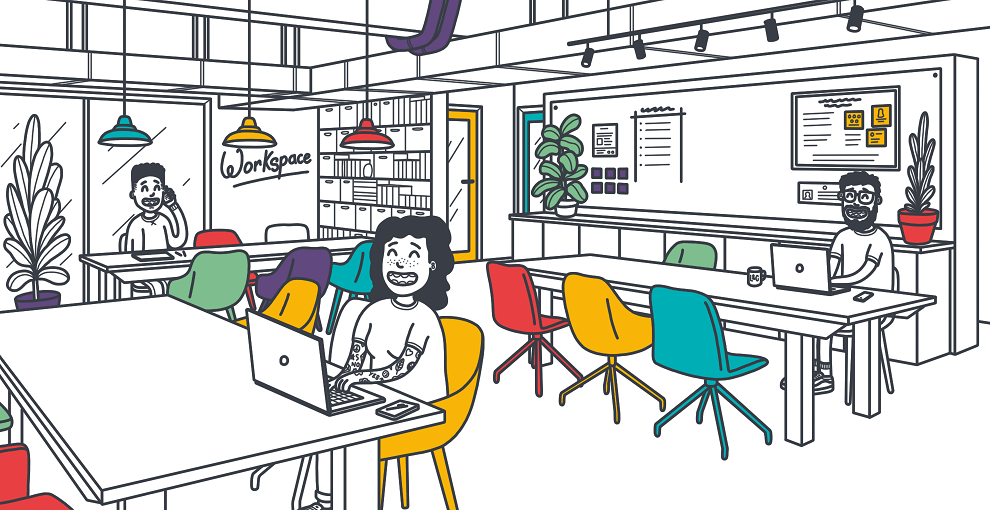Keeping paperwork isn’t everyone’s strong point. And that’s okay.
HMRC have realised this, and in an unusual attempt to help you claim some of the more complex expenses, they have created simplified expenses.
So, what exactly is a simplified expense?
A simplified expense is a flat rate that HMRC will allow you to offset against your self-employment income.
The goal is to save you the trouble of working out your actual business costs when preparing your self-assessment tax return.
They don’t completely eradicate the need for record keeping, as you may still be required to show how you decided upon the chosen flat rate. However, they reduce the amount of paperwork that you will need to keep throughout the year.
What expenses are covered?
HMRC have selected three expenses to simplify.
These are:
- Motor expenses
- Working from home
- Living in your business premises
How can I use simplified expenses to claim my motor costs?
This is the most well known of the simplified expenses and it’s the 45p per mile.
I ran through the different ways you can claim your motor expenses in this blog.
However, as a summary, if you want to use the simplified method of claiming your motor costs, you need to keep a log of your business mileage.
Then, any mile under 10,000 you can claim at 45p each. Any mile after 10,000 can be claimed at the reduced rate of 25p.
So, if you did 5,000 miles a year, your calculation would be 5,000 x 45p = £2,250 to go against your self-employment income.
If you did 15,000 miles a year, your calculation would be 10,000 x 45p = £4,500 plus 5,000 x 25p = £1,250 which gives you £5,750 to offset against your self-employment income.
HMRC have calculated the 45p as they believe this will cover not only the petrol, but the running costs of your car for these miles.
It may be worth noting that you cannot switch from actual costs to simplified for the same car and vice versa. So, you must decide what method you wish to use and stick to it.
However, if your business has two cars, you can claim actual costs for one and simplified expenses for the other.
How can I use simplified expenses to claim my use of home costs?
If you run your business from home, whether that is from the dining room table or a spare bedroom, your heating and electric costs are likely to be affected.
You can work out the actual costs of this but working out the square footage and business use percentage (I’ll write a blog on this shortly) but that can take a lot of time and you may be no better off for doing so.
HMRC have created a flat rate for anyone who works more than 25 hours a week from home. These are:
- 25 to 50 hours is £10 per month
- 51 to 100 hours is £18 per month
- 101 hours or more is £26 per month
For most of us, these flat rates will be adequate and it’s a very easy expense to forget about claiming. So, using this is an easy win as popping £120 into your expenses will say you around £35 in tax and national insurance. Okay, so it’s not going to buy you a new car, but it’s better than nothing.
If you dedicate a room purely for your business then this flat rate is not going to be high enough, so you may wish to consider calculating actual costs.
How can I use simplified expenses to claim my personal usage if I work from my business premises?
This is going to affect very few people, so I’ll be brief.
If you run a bed and breakfast, guest house or a small care home, there is a chance that you will live in the same building.
Because the building is mainly business use, it can be hard to work out what percentage of the costs you should add back, reducing the expenses, to reflect what you use personally.
HMRC have decided that:
- If it’s just you living at the premises, then you add back £350 per month.
- If there is two of you, then you add back £500 per month.
- And if there is three or more of you, then you add back £650 per month.
To use this, you would add up all the running costs of the business and then reduce this total by the figure you calculate by using the rates above.
Is it really worth me using simplified expenses?
The main goal of using these is ease. And as I mentioned with the use of home, it can be a quick win when it comes to reducing your tax liability.
However, it isn’t always the best.
If you have a car that has high repair costs. Or you use a room purely for business, say you do some kind of therapy or massage that requires the room to be heated, then £10 per month isn’t going to accurately reflect what your actual business costs are.
So, if you’re concerned, it may be worth investing the time into running both side by side and then picking the best. That way, you’ll know going forward, whether you are getting the best deal.






